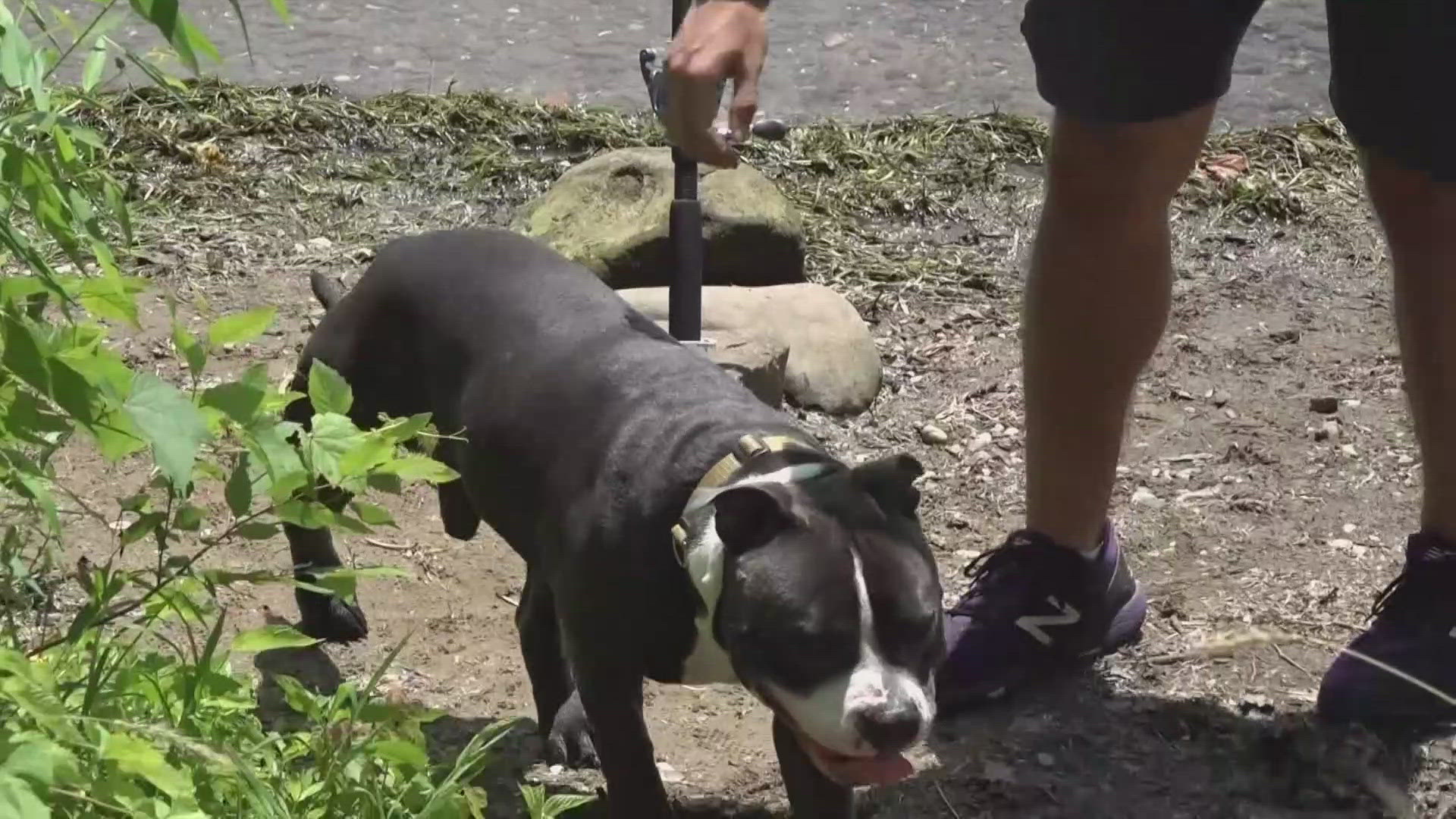WASHINGTON — The early episode of dangerous heat has heightened the risk of toxic algae blooms and other safety and environmental impacts, according to experts.
On Sunday a river thermometer at Little Falls near Chain Bridge on the Potomac River hit 90.5 degrees, the earliest the river's water has ever been so hot since the thermometer went into service in 2019, according to the U.S. Geological Survey. The average on that date is 78 degrees.
Warm water increases the risk of toxic algae blooms that can kill pets. Meanwhile, Vibrio -- the so-called flesh eating bacteria -- is also on the rise due to warming waters from climate change, a study in the journal Nature reported.
A toxic algae bloom has already impacted Lake Anna in Spotsylvania County. The bloom occurred after swimmers were sickened with E.Coli. The two incidents are not believed to be related.
On Friday, the U.S. EPA predicted a larger than average dead zone in the Chesapeake Bay this summer. Warm water is among the factors that contribute to the dead zone phenomena, which happens when blooms of algae suck all the dissolved oxygen out of the water killing fish.
Chesapeake Bay Foundation Senior Scientist Doug Myers said climate change is having an effect on water quality and safety.
"The data is pretty clear," he said. "The length of time of the year that we have elevated temperatures and the magnitude of those temperatures go beyond the range that a lot of species that are native here can tolerate."
Maryland’s Department of Natural Resources has reacted by asking anglers not to catch rockfish if the weather is over 95 degrees due to the high number of fish that die after being released by sport anglers. The agency now publishes a heat forecast for anglers and prohibits fishing for rockfish during the hottest two weeks of July.
Experts advise anyone planning an outing to a regional waterway during hot weather to pay attention to any advisories put out by local or state authorities about water quality or toxic algae blooms and keep pets and people out of the water during an advisory. Warnings signs can be posted in parks or announced on websites, depending on which agency and what jurisdiction outings are planned in.
A brief web search before you go is a worthwhile precaution when the weather has been hot for long periods of time, Myers said.

